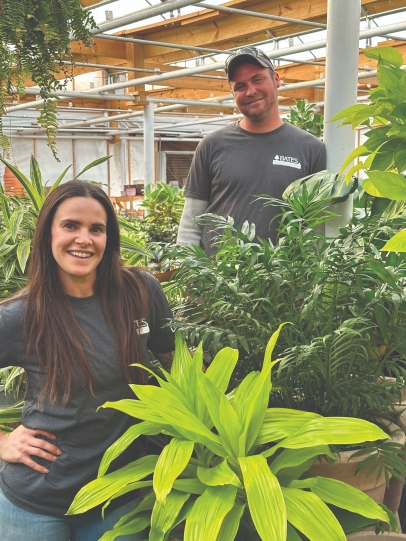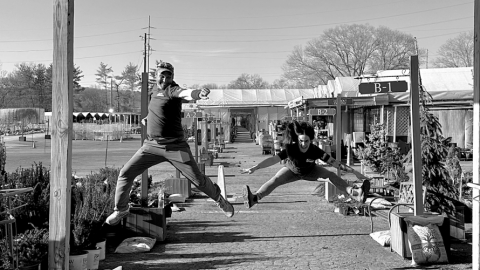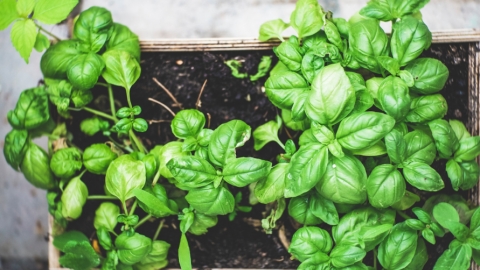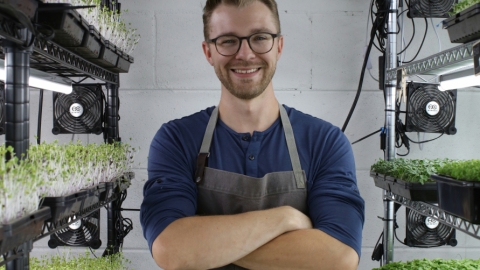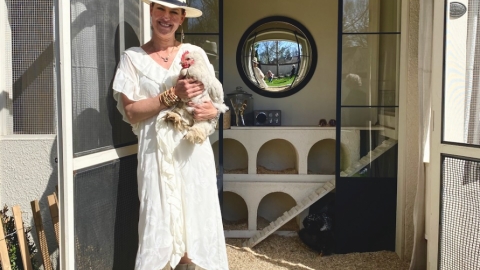The Top 7 Questions We Get at Bates Nursery
Gardening can be tough if you don’t have a natural green thumb.
Our go-to plant experts are Austin Lohin and Caroline Gant, part of the team at Bates Nursery, a local, family-owned garden center in Whites Creek. Austin and Caroline have the uncanny timing of answering just what we’re thinking about — like why this January’s cold didn’t call for covering plants, different from the freeze in December 2022. Let them guide you through planting this spring.
1. When is the best time to plant?
The running joke on “Gardening Inside Out” has always been “3:30,” regardless of a.m. or p.m., because, really, you can plant any time
the ground is workable and there is moisture available. Naturally, conditions get stressful for plants in the heat of summer (you can still plant, though — just prepare to water!), so planting is much better in the fall and winter months.
2. What is a great evergreen privacy plant to screen my neighbors?
Our go-to plant is usually emerald green, a type of arborvitae. However, if you favor native options, Taylor juniper is an excellent specimen that stays narrow and gets very tall (great for screening out those tall, skinny houses) in full sun. If you have more space, consider green giant arborvitae or another native option like Canaertii or Brodie juniper.
3. When do I prune?
Most pruning is usually done in winter dormancy (fruit trees and crape myrtles). However, for plants that bloom from buds on the previous year’s wood (like azaleas, certain hydrangeas and magnolias), it’s best to prune after the plant finishes blooming.
For evergreen plants (yew, boxwood and arborvitae), don’t prune after August or September; pruning later in the year encourages tender new growth that will definitely be killed by the first frosts in fall.
4. Is my plant dead?
We would say almost half the time we confirm the plant’s demise. However, other times we simply urge patience
to let the plants sort out their stress and make a recovery. Usually people have a natural urge to increase watering when a plant is stressed, and this is actually bad practice! Plants die quickly from overwatering. If the leaves of the plant start turning yellow, it’s often a sign of overwatering.
5. Is my soil important?
Yes. To prepare for planting annual vegetables and flowers, use an enriched topsoil blend (like EarthMix) to start your garden beds. Refresh established garden bed soil before each season (typically March and August) for the best year-round growing results. Add 2 inches of EarthMix SuperNatural Organic Compost and till into the top inches of soil.
6. Should I start with seeds or plants?
Always try growing things from seed because of how low-cost and rewarding it is. It’s okay to sow seeds outside rather than start indoors — sometimes they do better this way. In our hardiness zone (7b), sow cool-season vegetables in March and warm-season vegetables in early May. Make sure to loosely cover them, they don’t need to be placed too deeply. Birds may forage your seed, so having a way to cover them with insect mesh netting will protect them.
7. Why are the leaves turning brown and falling off my ficus?
This is usually caused by an event that shocks the plant, like leaving it outside in cold weather or winter dormancy and low humidity in the home. Remove the brown leaves, reduce watering and keep conditions the same. The plant will eventually produce new growth when it comes around.


